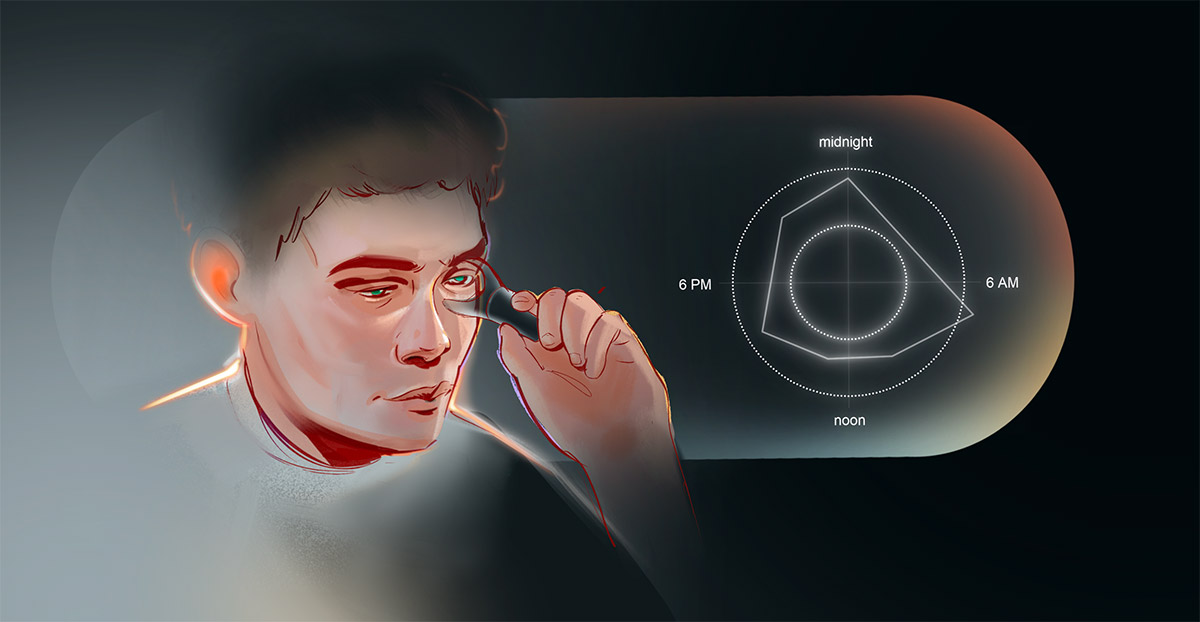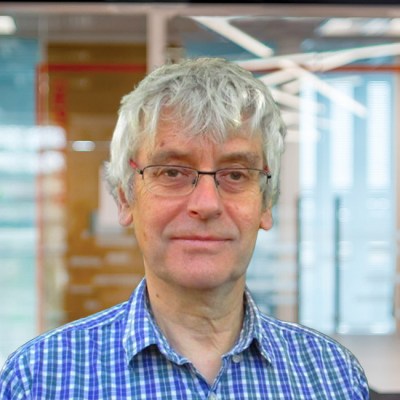CC has a track record in developing deep tech innovation that creates new-to-the-world solutions with transformative business and societal impact. In ophthalmology, we’ve spent many years driving innovation by collaborating with leading clinicians, partnering with academic institutions and delivering cutting-edge client projects. We also regularly commit to our own internal technology investments.
Causes of glaucoma and early diagnosis
Which brings me back to the case in point. In glaucoma, the optical nerve becomes damaged where it exits the eye. This is typically caused by fluid buildup at the front of the eye, which leads to a sustained elevated intraocular pressure. To get insight into someone’s IOP situation is not a trivial matter. They go to the optician and get an instantaneous reading, but how representative is that of their ocular health?
A person’s IOP varies throughout the day. The fluctuations for a healthy patient cover a wide range and may stray into a perceived dangerously high value. Likewise, a person at risk from glaucoma blindness may have times during a 24-hour period that their reading doesn’t flag up as ‘at risk’. So how do we know how to interpret a reading taken at the optician’s office?
Clinicians searching for better ways of identifying an elevated IOP, or tracking an existing condition, are looking into ways of taking multiple measurements over the course of a 24-hour period in the convenient surroundings of the patient’s own space. Arguably, a system supplying continuous measurements provides the most refined insight – and a system that monitors simultaneously other aspects of ocular health has more added value.
How is CC striving to prevent glaucoma blindness?
A team of CC scientists and engineers have invented a contactless approach to monitor the IOP. Our platform technology would enable patients to track changes in IOP compared to a baseline reading provided by a practitioner. As the tracking is done in a user’s own space and time, a pattern can be identified. All the user strictly needs from the device is a signal. This would alert them to revisit the practitioner because the system has identified a change to the pattern. The device elements were successfully tested on the IOP behaviour of porcine eyes.

And in terms of developing products for clients, we’d like to make the contactless approach available to a start-up, or a medical device company. It would be wonderful for the concept to be taken further and developed into a medical device system with huge commercial and societal potential. Reach out to me by email if you’d like to continue this conversation.





